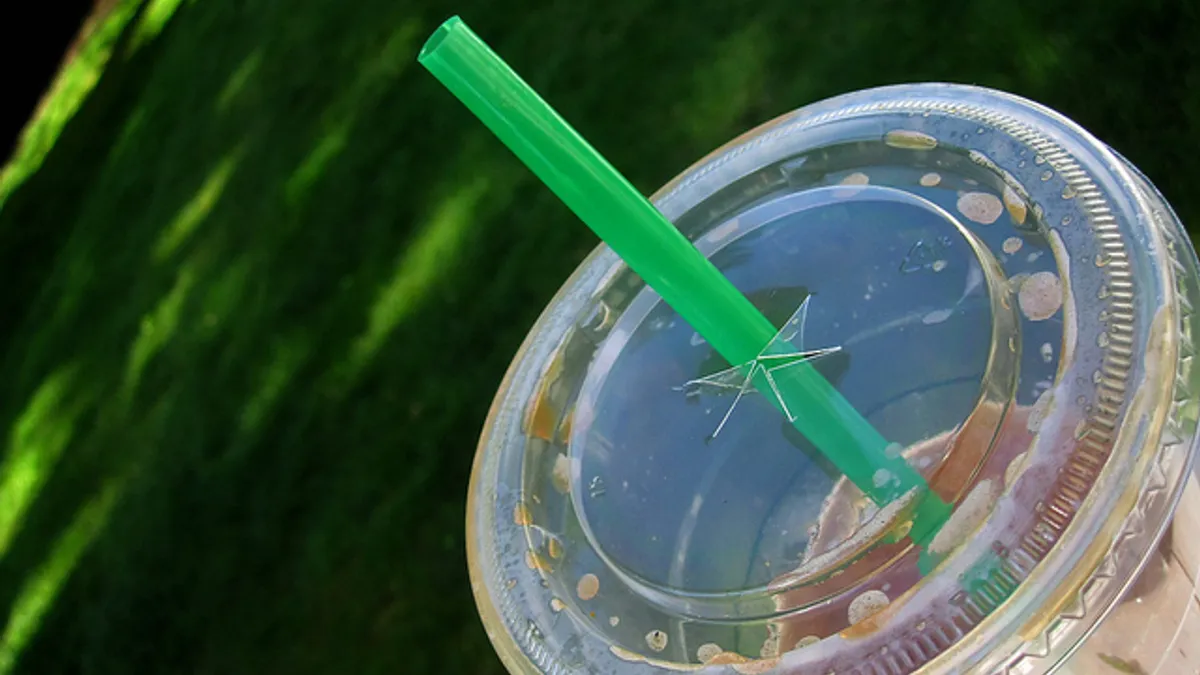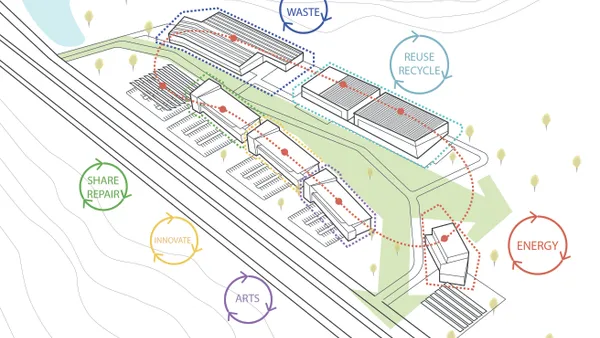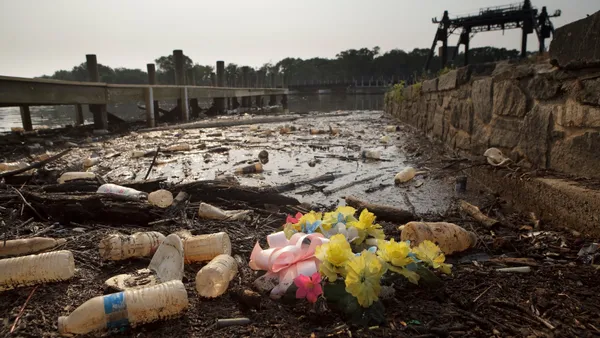Dive Brief:
- California Gov. Jerry Brown signed a law (AB 1884) barring full-service restaurants throughout the state from providing plastic straws, unless a customer asks for one. The law goes into effect on Jan. 1, 2019. Restaurants that violate the law will be given two warnings before being fined. Levied fines will be capped at $300 per year.
- In a signing letter accompanying the legislation, Brown said: "Plastics, in all forms — straws, bottles, packaging, bags, etc — are choking our planet. It is a very small step to make a customer who wants a plastic straw ask for it. And it might make them pause and think again about an alternative."
- Brown also signed two other plastic-related bills. SB 1335 will require the state to reassess packaging used at state facilities by the beginning of 2021 based on whether it is "recyclable, reusable, or compostable." SB 1263 will require the Ocean Protection Council to deliver a microplastics strategy to the state legislature for review by the end of 2021.
Dive Insight:
California is the first state to pass legislation tackling the trendy topic of plastic straw waste. It is less restrictive than the outright straw bans that some cities, including Seattle and San Francisco, have implemented recently. However, it is far more wide-reaching than municipal measures and has the potential to set a precedent for other states.
Advocates for people with disabilities say straws may be their only options for drinking. Proponents of the California law note people can still request straws, but restaurants will not be able to automatically hand them out. However, critics worry that the law will prompt restaurants not to carry straws at all or stigmatize those who request them.
Although straw waste is a hot topic, minimal scientific research exists to substantiate the claims that straws make up large proportions of waste in the environment. In fact, a number of experts consider the attention on straws to be an "eco fad" that makes the public feel good but has little impact on addressing the problem of plastics in the environment. The current movement was largely prompted by a 2015 viral video of a turtle with a straw stuck in its nose.
Activists contend that although plastic straws might not be the largest or most pressing environmental concern, straws are a "gateway plastic" that bring attention to the greater problem. They're relying on the momentum from the anti-straw sentiment to open the door to reducing waste caused by other single-use plastics.
Brown addressed that in his letter, saying, "[One] thing is clear, we must find ways to reduce and eventually eliminate single-use plastic products."
While knowledge of the environmental impact of single-use plastics is growing, some believe promoting better plastic recycling practices is a more useful solution than outright material bans. Such sentiment is evident in the greater push for sustainable packaging that can be recycled, as well as calls for using higher percentages of recycled material to manufacture new products, thus contributing to a more circular economy.















